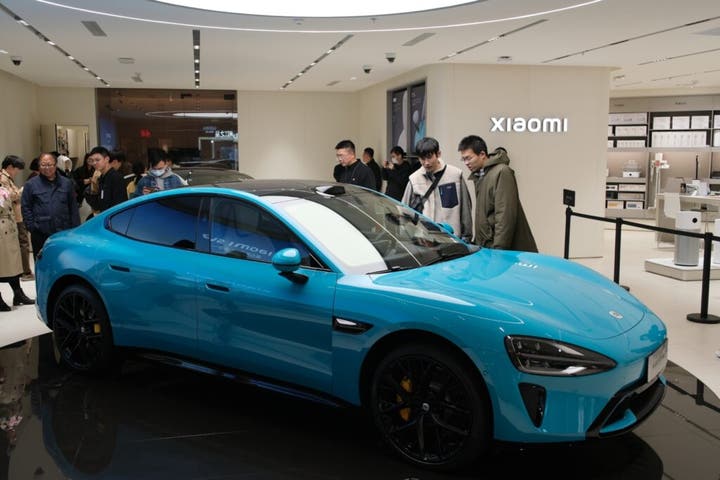Xiaomi's Budget EV Makes Waves With 70,000 Lock-In Orders Xiaomi, Lei Jun, SU7 vehicles, respectively, 100, 000 units delivery target, Gross profit margin around 5-10%, Chinese market focus for three years, Non-refundable deposits of 70, 000 orders, Select versions of the vehicle already delivered, Expected losses due to expensive parts and suppliers, S.. by https://www.benzinga.com/

AI Insights:
Simple Explanation:
Xiaomi is a big company that makes phones and other things. They are making a new car called the SU7, which is cheaper than some other cars like Tesla's Model 3 in China. Many people want to buy this car, so they have already sold over 70,000 of them even before they were ready. The boss of Xiaomi says they will lose money on each car because it costs a lot to make them. But they still want to sell more cars and hope that people will like them. Read from source...
Critical Perspective:
- The title is misleading and exaggerated. Xiaomi's budget EV makes waves? Really? With 70,000 lock-in orders? That sounds like a modest success at best, not a wave. A more accurate title would be "Xiaomi's Budget EV Gets Moderate Response From Customers".
- The article does not provide any context or comparison for the 70,000 orders. How many units were produced? How long did the order period last? What is the market share of Xiaomi in the EV segment? These are important details that would help readers understand the magnitude and significance of the demand for the SU7.
- The article quotes Lei Jun's statement about the gross profit margin being around 5-10%. However, it does not explain how this compares to other EV manufacturers or what factors influence such a low margin. Is Xiaomi sacrificing profitability for market share? Or is it facing high production costs and competition from established players?
- The article mentions the starting price of the SU7, but does not provide any information on the features, specifications, or performance of the vehicle. How does the SU7 stack up against its competitors in terms of range, battery life, charging time, safety, design, comfort, and user experience? What are the main selling points or unique advantages of the SU7 over other EVs in the market?
- The article highlights that Xiaomi received over 50,000 orders in less than half an hour of starting to take orders. However, it does not mention how many of these orders were canceled, refunded, or delayed. How reliable and sustainable is this demand for the SU7? What are the factors that influence customer behavior and decision making when it comes to purchasing EVs?
- The article ends with a promotional blurb for Benzinga's Future Of Mobility coverage, which seems irrelevant and out of place in the context of the Xiaomi story. Why is Benzinga advertising its own content here? Who benefits from this kind of cross-promotion? How does it affect the credibility and objectivity of the article?